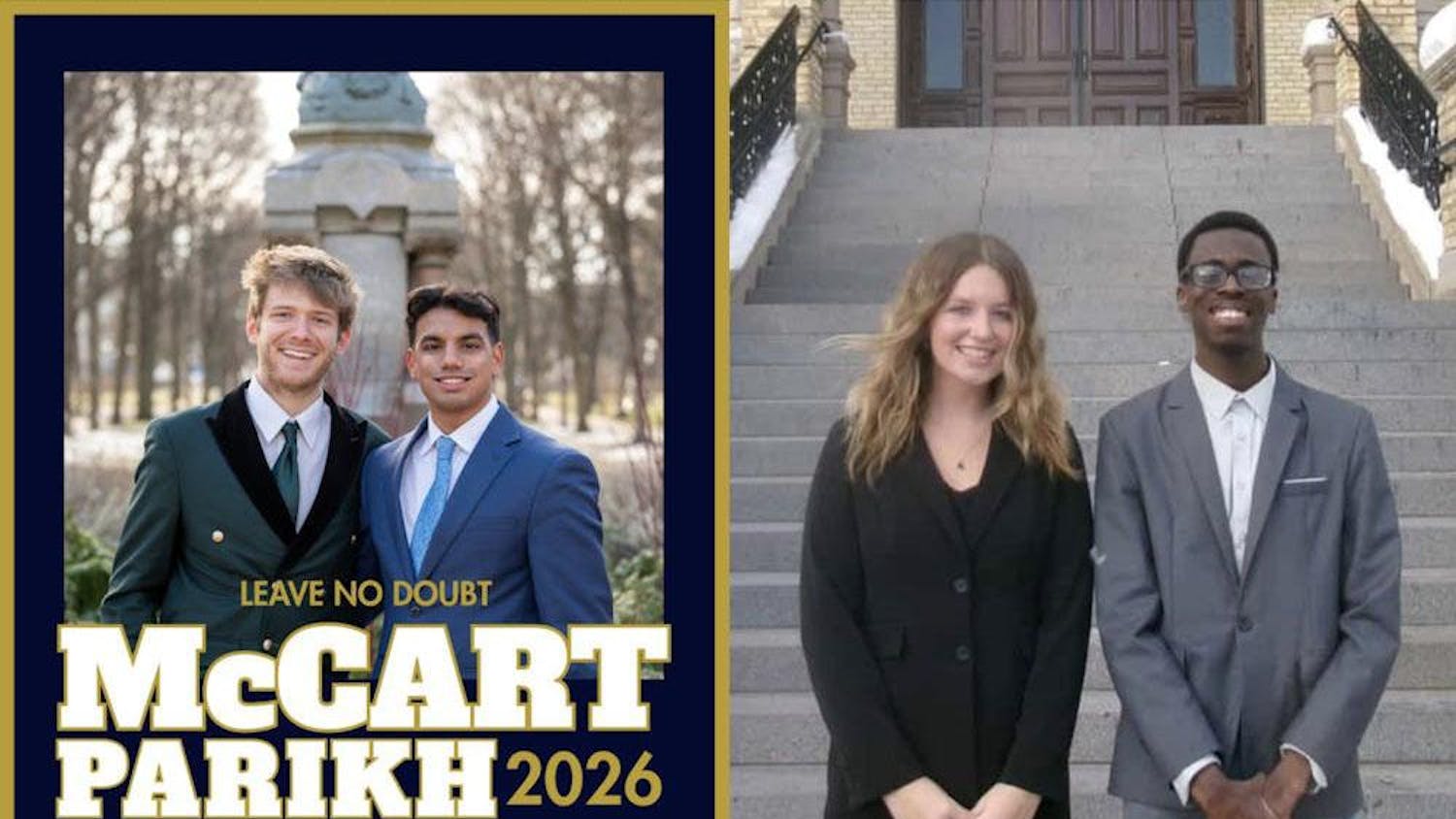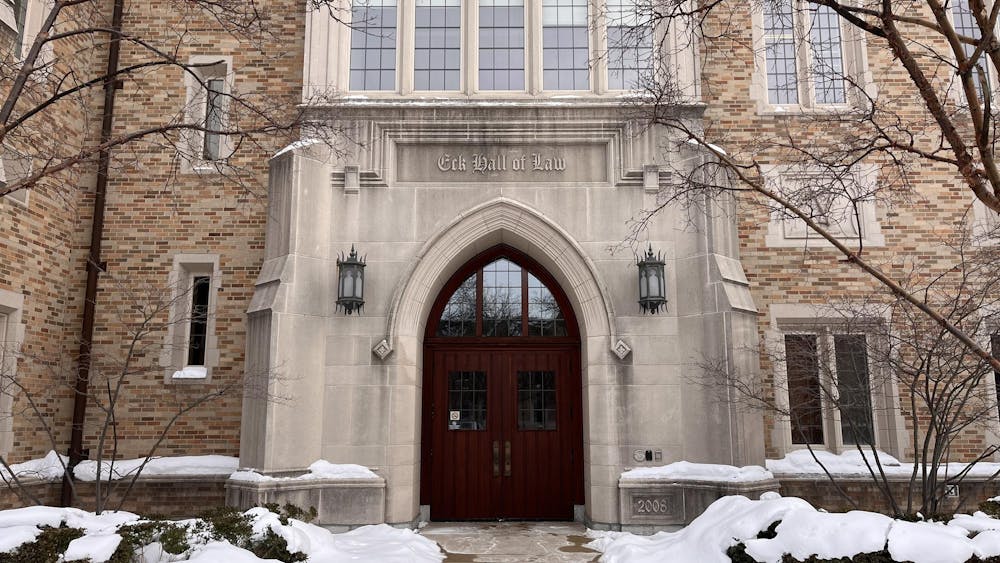In McKenna Hall on Tuesday night, classics professor Joseph Amar argued officials in the Greek portion of the Roman Empire in the fourth century C.E. distorted the legacy of Ephrem the Syrian, an influential Syrian Christian, to protect its own state-sponsored religion, as part of the year-long lecture series in honor of the late classics professor Sabine MacCormack.
To begin the talk, titled, “Blessed is the Man who has not Tasted the Poison of the Greeks: Ephrem the Syrian and the Greek Roman Empire,” Amar told the most popular story of Ephrem. In the story, Ephrem, a poor uneducated Syrian monk who only speaks Syriac, journeys to Caesarea with another monk in order to meet the archbishop Basil.
“When Basil emerges from the sanctuary to begin preaching, he’s surrounded by a light so preternaturally bright that the two monks must avert their eyes,” Amar said. “In stunned amazement, Ephrem turns to his companion and says, ‘Is this a man? Or is this the pillar of fire that guided the Israelites in the desert?’”
A disturbance in the church leads Ephrem and his companion to meet Basil, and when the bishop learns of Ephrem, he ordains the monk on the spot, Amar said.
“Basil pauses and says to Ephrem through the interpreter, ‘Is there any unanswered prayer or need you have so that I may petition God on your behalf?’” he said. “It is at this point that Ephrem looks up at the archbishop and says, ‘Sir, I have only a single desire. It is the wish of my heart. Petition the Lord on my behalf that before I die I may be able to speak Greek.’ Basil lifts his eyes and [says] the prayer of ordination, and Ephrem responds in faultless Greek.”
Amar said this series of events never happened. In fact, in his own writings, Ephrem states that he does not speak Greek, Amar said.
This myth serves as a reimagining of Ephrem, who questioned the status quo and served as a leader among the Syrian people, designed to make him seem like a suitable role model for members of the Empire-sponsored church, Amar said.
“Ephrem’s was a voice that dominant fourth-century Christian culture could not ignore,” he said. “What to do then? Remake him into someone who would, rather than challenging [it], affirm dominant Christian culture. Remake him as the oriental, the dialectical other, who in spite of his cultural and linguistic inferiority, arrived at the truths of orthodoxy.”
On the contrary, Ephrem, who was born in Nisibis at the intersection of modern day Syria, Turkey and Iraq in 306 C.E., spoke of Mesopotamia as the center of human history and the land of salvation, rather than elevating the place of the western empire, Amar said.
“[Ephrem] was referring to a Christian culture of intellectual elites that had forfeited what Ephrem called ‘the simplicity and directness of our sacred books’ for their own book learning,” he said.
Empire leaders were wary of the East, considering it the “dark shadow of the West,” Amar said. Ephrem was dangerous because he told the story of his own people through scripture, in contrast to the state-sponsored church, he said.
Amar said in 1920, Ephrem was declared a Doctor of the Universal Church, which suggests his reputation as an influential Christian figure was not completely tainted by the Greek Roman Empire, but we can still learn a lot about the state-sponsored church in the fourth century C.E. by analyzing the nonthreatening characterization of Ephrem.
“The man revered for his genius in crafting bold imagery that ignited imaginations and intoxicated Syrian men and women as though with new wine was reduced to a docile monk whose fondest wish was to be able to speak Greek,” he said.
Read More
Trending









